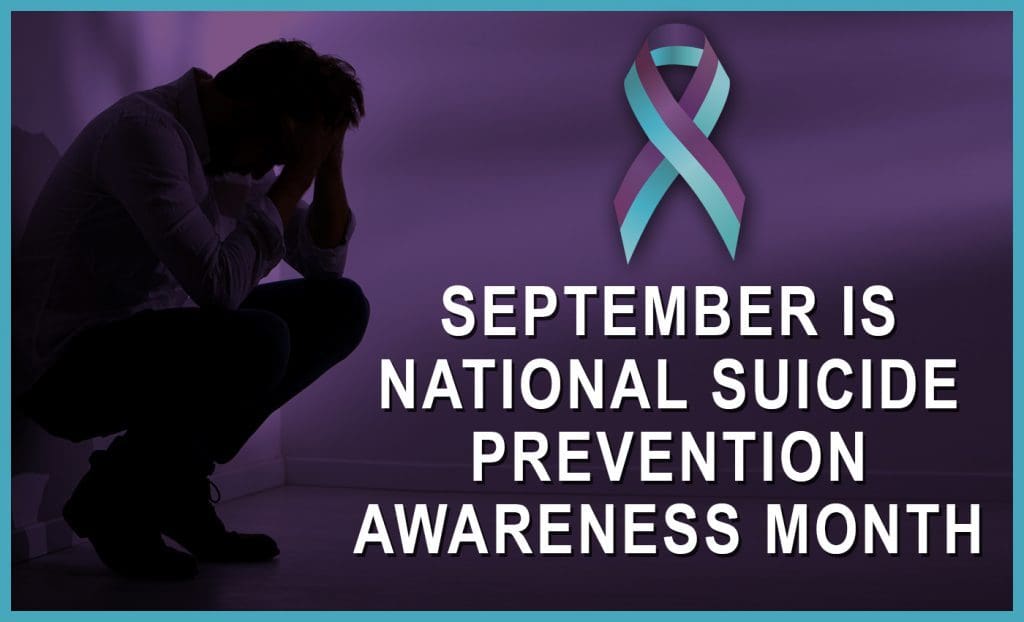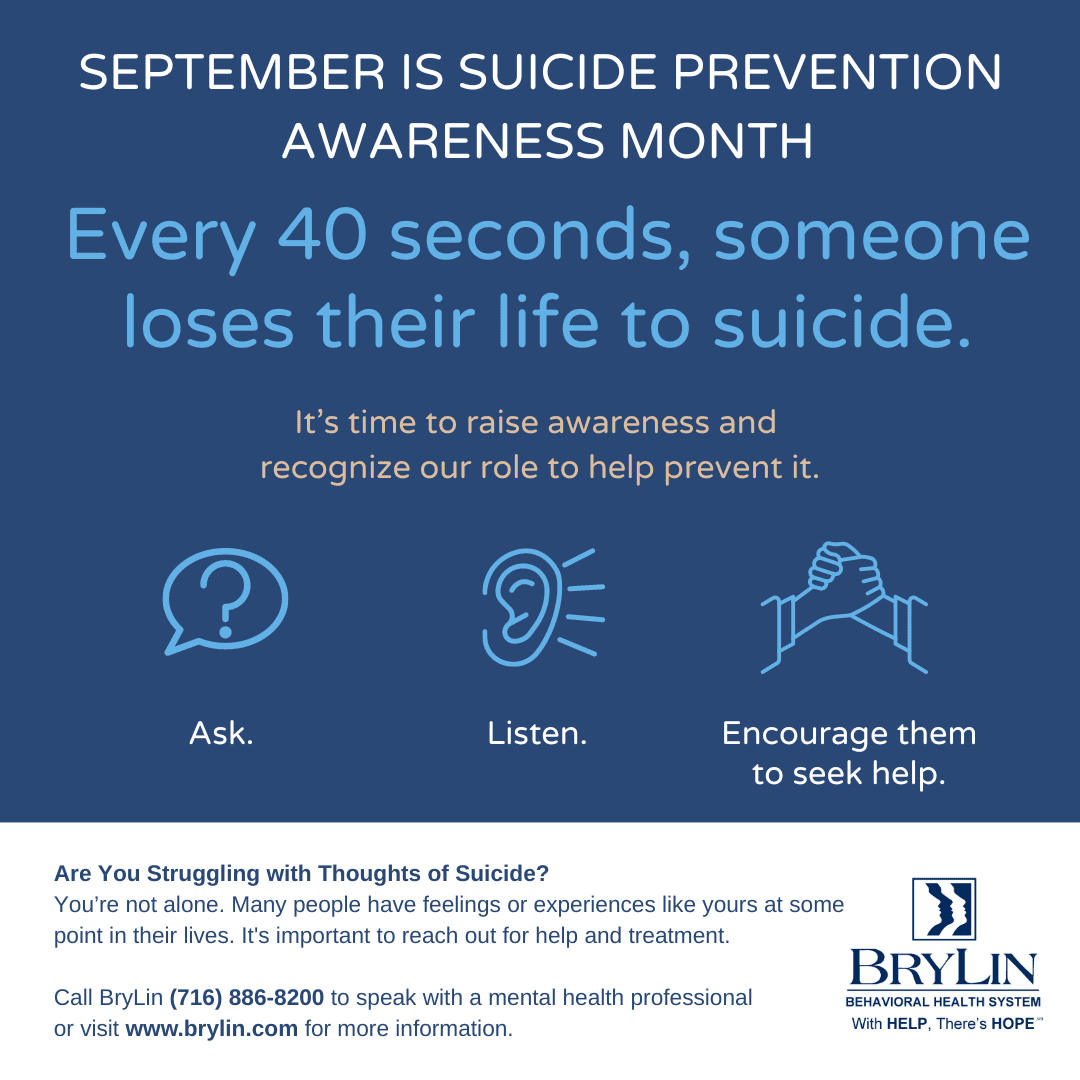
September is Suicide Prevention Awareness Month, a time to help raise awareness and understanding of mental illness, depression and suicide. In doing so, we hope to alleviate stigma, normalize the conversation around mental illness, help those struggling with suicidal thoughts, educate about the warning signs of suicide and make efforts in prevention and treatment.
The number one thing you can do to help aid in our suicide epidemic is educate yourself so that you can help prevent, heal and reduce the stigma surrounding the issue of mental illness and suicide.
Knowing the problem
Approximately 800,000 people die every year due to suicide, and many more family members and friends share that pain. That equates to a person dying about every 40 seconds due to suicide. Many other individuals have unsuccessful attempts at suicide, leading to living a life with sustained injury, wounds, scars, shame, and if left untreated may continue to live a life feeling depressed, suicidal, and make further attempts to take their own life.
Risk factors for suicide
- Previous attempts
- Concrete plan to take their own life
- Mental health issues including depression, anxiety, and bipolar disorder
- Substance use issues
- Gambling issues and other addictions
- Reckless behavior
- Lack of meaning and purpose in life
- “Self-harm” behaviors such as cutting or burning
- Eating disorders including anorexia, bulimia, binge eating, and food addiction
- Physical, mental, or emotional abuse from bullying, domestic violence or other
- Loss including relational, social, financial or occupational
- Relationship issues
- Lack of access to professional help and resources
- Losing somebody to suicide
- Statements such as life is pointless or expressions of self-hatred
- Access to lethal methods of death such as firearms or drugs
- Highest rates of suicide are individuals ages 15 to 29
- Men are more likely to follow through on suicide and use successful means
- Suicide is more prevalent among low to middle-income individuals
Myths that simply are not true
- Talking about suicide with a suicidal individual will make the problem worse or increase the likelihood of a person carrying out their suicide plan.
- People who express suicidal thoughts but have never acted out on their thoughts are simply “attention seeking.”
- Suicidal individuals will be suicidal forever.
- Only people with mental health issues become suicidal.
- Suicides happen suddenly and without warning
- Suicidal people want to die.
- If someone is suddenly happy, they are no longer suicidal.
Suicide Prevention – Suicide IS Preventable
Know the signs:
- Isolation
- Feeling like a burden
- Feeling lonely
- Feeling helpless or hopeless
- Feeling sad or depressed
- Anxiety
- Substance abuse or increased substance use
- Irritability, anger, and mood swings
- Sleeping too little or too much
- Talking or posting about wanting to die
What you can do
- Ask them how they are feeling and listen.
- If actively suicidal, keep them safe until professional help arrives.
- Help them connect with treatment.
- Show compassion and love to those with mental health or substance abuse issues.
- Talk openly about mental health and substance abuse.
- Reduce stigma, mental health is no different than physical health.
- Educate yourself about mental health.
- Do not label or stereotype people with mental health or substance abuse.
- Do not shame those with mental health, help empower them.
- Spend time with them engaging in self-care and activities they enjoy.
- Be a role model, demonstrate self-care and recovery related behaviors.
- Follow up and check in regularly, show them you care.
Are You Struggling with Thoughts of Suicide?
You’re not alone. Many people have feelings or experiences like yours at some point in their lives. It’s important to reach out for help and treatment.
Call BryLin (716) 886-8200 to speak with a mental health professional or visit www.brylin.com for more information.

*Source: Lin Sternlicht, LMHC, MA, EdM and Aaron Sternlicht, LMHC, MS, CASAC


Comments are closed